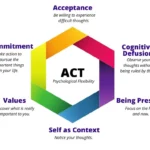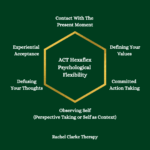When to set rules in couples therapy? The answer is simple: right from the start. Establishing clear guidelines at the beginning not only creates a foundation for trust but also fosters mutual respect. These rules set the stage for meaningful conversations and constructive conflict resolution.
Moreover, couples therapy approaches such as fair fighting rules for marriage and family therapy ground rules help create a supportive environment.
Why Rules Matter in Couples Therapy
Rules in therapy sessions keep discussions productive. Additionally, they prevent emotional harm and create a safe space for both partners. Without boundaries, sessions may spiral into unhelpful arguments.
Therefore, setting rules early helps manage expectations and maintain focus. Furthermore, these treatment goals for couples therapy guide the process toward success.
The First Session: A Critical Time for Rule-Setting
The initial session lays the groundwork for future progress. In fact, the therapist should outline family therapy ground rules and fair fighting rules for couples.
Open discussions about goals for couples therapy encourage transparency and build trust. Early agreements, consequently, help establish mutual respect and accountability.
The family therapy first session outline often includes establishing treatment plans and setting clear boundaries.
Essential Rules for Fighting Fair in Marriage
- No Name-Calling: Respect is non-negotiable.
- Stick to One Issue: Avoid overwhelming your partner with multiple grievances.
- Use “I” Statements: Express feelings without assigning blame.
- Take Breaks When Needed: Prevent escalation by stepping away to cool off.
- Avoid Bringing Up the Past: Focus on the present issue.
These guidelines reduce emotional damage and enhance communication during therapy and beyond. Additionally, rules for fair fighting in marriage are a cornerstone of couples therapy resources.
Treatment Goals for Marriage Counseling
Effective therapy requires clear objectives. Typical goals include:
- Improving communication.
- Rebuilding trust.
- Learning conflict resolution skills.
- Strengthening emotional intimacy.
- Creating a shared vision for the future.
Each goal aligns with the couple’s unique challenges and aspirations. Consequently, when couples counseling methods align with these goals, progress is more achievable.
How Long Does Couples Therapy Take?
The duration depends on the couple’s needs and commitment. Some couples see progress in 6-12 sessions. Others require longer-term therapy.
Consistent attendance and adherence to agreed-upon rules significantly accelerate results. Understanding how long couples therapy takes, therefore, helps set realistic expectations.
Strategies for Effective Rule-Setting
- Collaborate on Rules: Ensure both partners agree.
- Write Them Down: A written list provides clarity.
- Review Regularly: Adapt rules as the relationship evolves.
- Seek Therapist’s Input: Leverage professional expertise for tailored guidelines.
Therapists often provide couples therapy ideas, such as couples mirroring or step-by-step marriage counseling activities, to enhance engagement.
Common Rules in Couples Therapy
- Active Listening: Fully hear your partner before responding.
- No Interruptions: Respect each other’s turn to speak.
- Be Honest: Transparency builds trust.
- Stay Focused: Avoid going off-topic.
- Maintain Confidentiality: Safeguard what’s shared in sessions.
These rules foster a constructive environment and ensure meaningful progress. Furthermore, marriage therapy at home may also follow similar guidelines for consistency.
When is Couples Therapy Not Appropriate?
Therapy may not work if:
- One partner is unwilling to participate.
- There is ongoing abuse or violence.
- Hidden agendas exist, such as using therapy to justify leaving.
- Severe addiction issues remain untreated.
In such cases, individual counseling for marriage may be a better first step. Therapists can identify when couples therapy is not appropriate and suggest alternative approaches.
Tips for Couples Therapy Success
- Come Prepared: Know what you want to discuss.
- Be Open-Minded: Accept feedback without defensiveness.
- Practice Between Sessions: Apply what you learn in daily life.
- Stay Committed: Progress requires consistent effort.
Fair fighting guidelines for couples can support these practices, helping partners remain focused on mutual growth.
What to Expect in Couples Therapy
Therapists use various approaches, such as:
- Cognitive Behavioral Therapy (CBT): Focuses on changing negative thought patterns.
- Emotionally Focused Therapy (EFT): Strengthens emotional connections.
- Solution-Focused Brief Therapy (SFBT): Emphasizes finding practical solutions.
Each session typically includes:
- Reviewing past progress.
- Addressing current challenges.
- Setting actionable goals for the future.
Questions to ask couples in therapy often revolve around communication, trust, and shared goals.
The Role of Fair Fighting Rules in Marriage
Fair fighting guidelines teach couples how to manage conflict constructively. They include:
- Avoiding accusations.
- Staying calm.
- Using respectful language.
- Taking responsibility for your actions.
Following these principles prevents arguments from becoming destructive. Learning rules of fighting fair in a marriage can, therefore, transform how couples address disagreements.
Conclusion
Setting rules in couples therapy is essential for success. It creates a framework for open communication and mutual respect. When rules are established early, therapy becomes a powerful tool for healing and growth. By adhering to agreed-upon guidelines, couples can build a stronger, healthier relationship. Additionally, therapy resources like couples counseling guides or fair fighting rules PDFs can support ongoing efforts to strengthen the bond.










